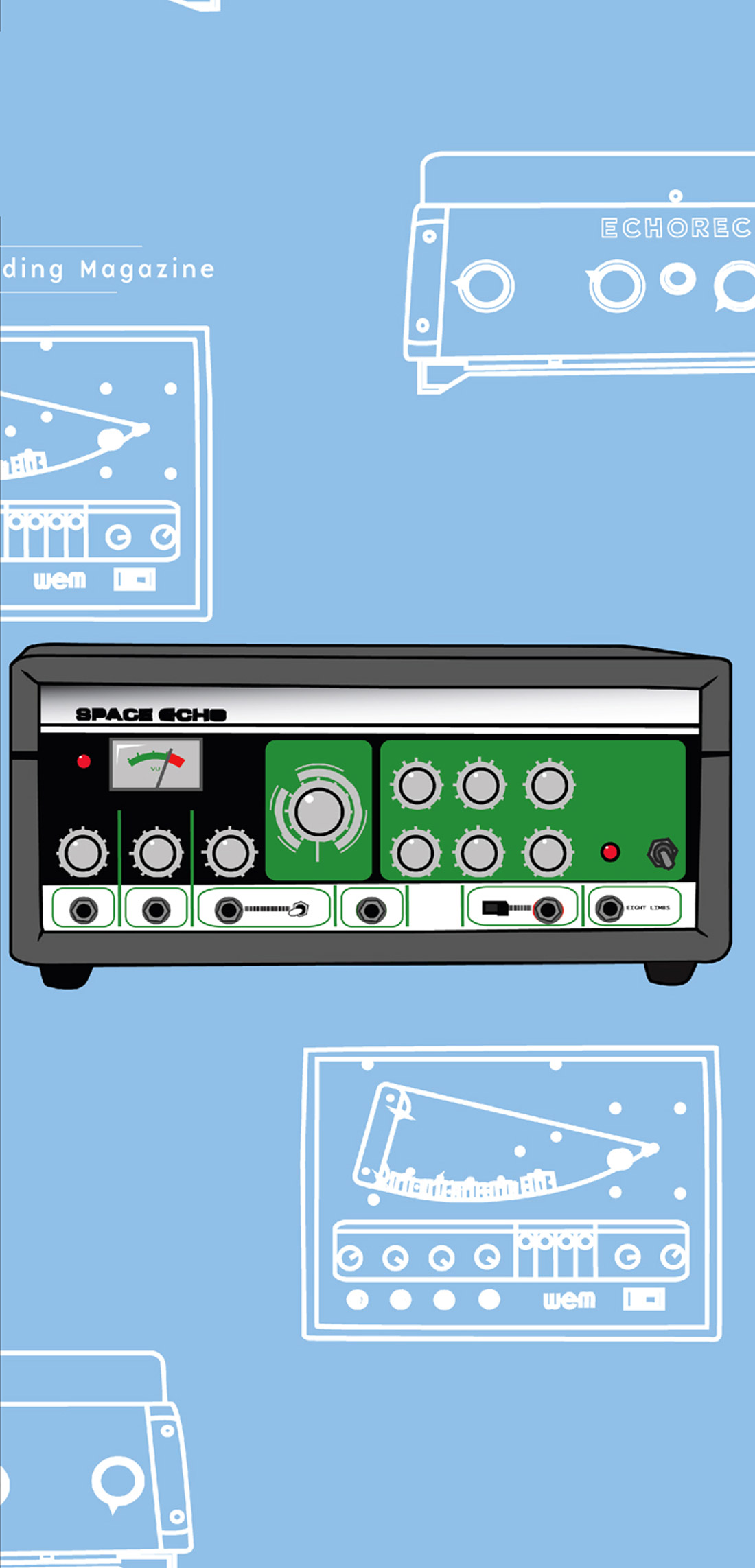Olympia, Washington's Cascade is probably best known for bringing affordable ribbon mics to the masses. Sure, they offer condensers too, but a quick scan of their website quickly reveals their niche. Shown are multiple short-ribbon (Gomez, C77, Knuckle Head, the popular Fat Heads) and long-ribbon (Victor, Vin-Jet) choices, and one that caught my eye, the 731R, featuring dual short-ribbon motors, which Cascade claims is similar in ribbon design to the famed RCA Type 44-BX.
I'll admit, the mic is visually spectacular. It's a deco masterpiece that looks like it fell off of the Chrysler Building. Like most Cascade products, it also feels solid. It's heavy enough that care must be taken when using consumer-level boom stands, because it will certainly load them and possibly tip over - the worst thing for a ribbon mic.
I was interested in what a dual-ribbon mic could do for me that a single-ribbon mic like my Fat Head (Tape Op #55) couldn't. Ostensibly, less preamp gain would be needed, and perhaps the short ribbon's characteristic midrange boost and gentle roll-off of the highs would be accentuated with two motors instead of one.
Guitar tracks that I recorded had a nice full sound, with a lot of body. As expected, there was no harsh high end. Positioning the cabinet towards a reflective wall or a gobo created more or less "roominess," depending on how far the mic was from the cabinet. I set up a less expensive Fat Head for comparison. Did I notice any major differences? Nothing striking. Both sounded great though.
As drum overheads, in a Glyn Johns configuration, they produced a really solid, classic sound. In a high ceilinged, relatively lively room, both kits (Fibes acrylic with single ply clear heads; Gretsch jazz with single ply batters) recorded nicely with surprisingly little effort - set up the pair; measure 40 inches to the snare; then add kick and snare mics; hit record. Cymbals were kept well in check. The overall sound could be a bit too dark for some people's taste. There's certainly nothing "Top 40" about it, but I found it very pleasing. The tracks recorded with the Gretsch kit were part of a session, and they ended up sitting nicely in the mix. I also got great results with a Blumlein pair in a room that could only be described as "above average, but not world class." I plan to do it again in the future.
I enjoyed the smoothness I got when using the 731R for vocals. It was especially interesting using it to record lead and backing vocals simultaneously to one track - the "old timey" way. After experimenting with distance to change the relative volume of the singers, we got a great take.
Where the 731R really showed its stuff, however, was on brass and strings. I was tasked with creating a trumpet stack for the new Kingsbury Manx record. After trying out some of the usual suspects, I settled on the 731R, positioned above and looking down at the bell. Mechanical noise was kept in check, and as with cymbals, brassy harshness was tamed.
For cello, I tried aiming at the neck joint and at one of the f-holes, but quickly settled on the former. I had to back the mic up since the cello was really rattling the ribbon, but at about 3 ft, I found the sweet spot, and boy was it ever sweet. That far off the instrument, there was a nice amount of room, and the cello sounded thick, round, and truly fantastic.
With the Fat Head costing only $175, I'm tempted to recommend buying two of them instead of one 731R. Having the Blumlein option is nice, and Cascade will even toss in the bar, gratis, to make it easier on you. Having two ribbons is great for drum overheads or tracking "live in a room" sessions since you have more null sides to play with. However, if it's in your budget, the 731R will indeed give you a little more, especially with strings. It will be my go-to mic for them in the future. I was really impressed.
As with most Cascade mics, you get quite a lot of extras in the deal. Included is a padded wooden box, an aluminum case to put that in, a soft cleaning cloth, and a quality right-angle XLR cable, which works well with the mic, allowing it to move freely on its mounting yoke. There is a five year warranty against defects, and Cascade will replace the ribbon with very few questions asked within the first year. They are known for great customer service, but it's still probably best to watch those SPLs, and when in doubt, use a pop filter. ($299 street, $449 with Lundahl transformer; www.cascademicrophones.com)
-Alex Maiolo <stablenet@gmail.com>




_disp_horizontal_bw.jpg)